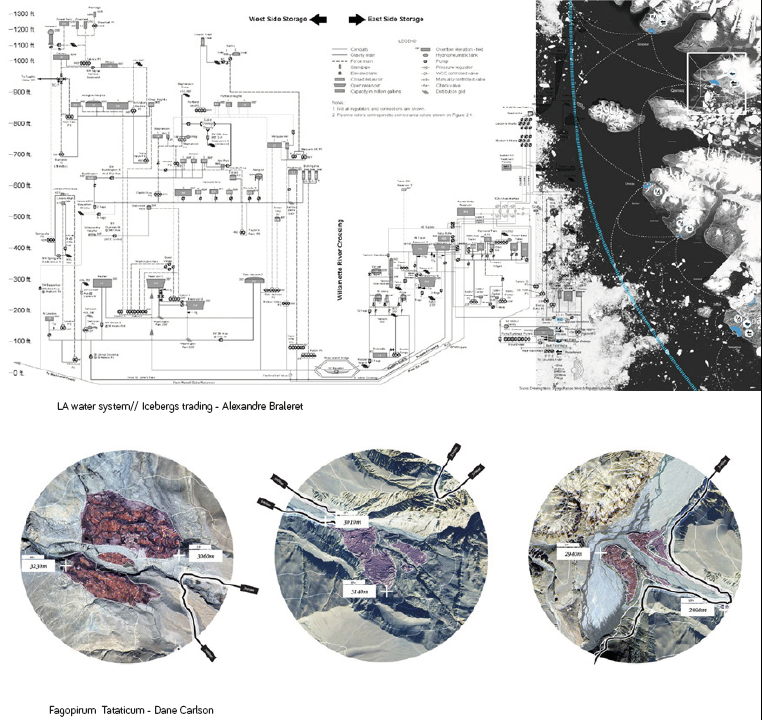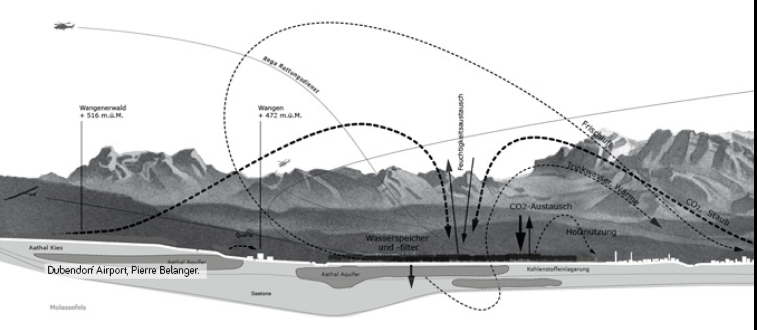SE.6 – Elective Seminar
SLOW CRISIS
Engineered landscape mutations
Faculty: Rodrigo Rubio
Junior Faculty: Ruxandra Iancu
Our current relentless planetary urbanization relies on a flawed modern ideal: one of a sharp detachment between human and non-human, between man-made systems and environmental dynamics, between economy and ecology.
The increasing unpredictability of hydrological, meteorological and geological patterns revealed many of our serious vulnerabilities as builders and inhabitants of our own landscapes . This phenomenon is what we define as a ‘slow crisis’, whose pace and ungraspable scale seems to render it invisible for our human perspective.
SLOW CRISIS is a research-based seminar that aims to build articulated operative knowledge on our current ecological transformations, their affects and effects on our urbanized world. Following recent claims on the need for a contemporary redefinition of the term infrastructure – soft rather than hard, environmentally resilient rather than mechanistically efficient – we will work on constructing a toolbox of engineered landscape mutations.

METHODOLOGY
Framing the studies in the fast-growing cities of Africa, South America and Asia, and drawing from notions on ecological accountability (H.Odum), on soft technology (Ernst Friedrich Schumacher) and hyperobjects (T.Morton), we will proceed following a two-steps process:
– Micropedia of Critical Landscapes [2ndTerm]
Students will first detect or select their targeted slow crisis. Then they will isolate and synthesize prototypical cases of critical urban landscapes and their potential processes of mediation and mutation.
– Catalogue of Landscape Mutations [3rdTerm]
Drawing from the previously developed micropedia, students with try to challenge mainstream ecological holisms by proposing hyperlocal mutations. Landscape archipelagos that maximize local symbiotic flows in search for an ideal self-sufficiency.
[2] BELANGER, Pierre. “Redefining Infrastructure,” Ecological Urbanism, Mohsen Mostafavi and Gareth Doherty eds. Baden: Lars Muller Publishers, 2010.
